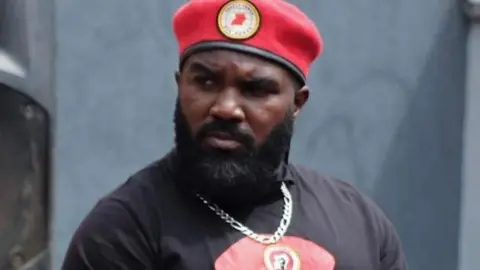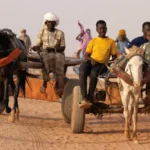A bodyguard for a prominent Ugandan opposition figure has been formally charged, casting a stark light on allegations of torture and the ongoing tensions surrounding political dissent in the East African nation. While details remain somewhat guarded as legal proceedings commence, available information and documented patterns of behavior by security forces suggest this case is not an isolated incident, but rather a potential symptom of a wider issue.
The individual in question, whose identity is being protected for now, was reportedly apprehended following an incident related to the opposition leader’s activities. What followed, according to credible reports and legal filings, were claims of physical and psychological abuse during detention. The formal charges brought against the bodyguard are reportedly unrelated to the alleged torture, but rather stem from the circumstances of their arrest or subsequent events. This distinction is crucial, as it suggests the focus of the prosecution may be on silencing or neutralizing opposition elements rather than addressing potential human rights violations committed by state actors.
Evidence supporting the torture allegations is said to include medical reports documenting injuries consistent with physical abuse. Furthermore, testimonies from the bodyguard and potentially other witnesses are expected to be presented in court. Human rights organizations operating within Uganda and internationally have long documented a pattern of torture and ill-treatment of political opponents and activists by security forces. Reports from Amnesty International, Human Rights Watch, and local Ugandan human rights groups have consistently detailed instances of arbitrary arrests, prolonged detentions without trial, and the use of torture to extract confessions or intimidate individuals.
The charging of the bodyguard in the wake of these torture allegations raises significant concerns about accountability within Uganda’s security apparatus. While the legal process against the bodyguard will unfold, it is imperative that a thorough and impartial investigation into the torture claims is conducted. The focus should not solely be on the actions of the bodyguard, but also on the conduct of those responsible for their detention and interrogation.
The Ugandan government has, in the past, publicly denied allegations of systematic torture. However, the persistence of such claims, coupled with documented evidence and the current charges against the bodyguard, paints a different picture. The timing of this incident, amidst a politically charged environment leading up to future elections, further exacerbates concerns about the shrinking space for political opposition and freedom of expression.
This case serves as a stark reminder of the challenges faced by those who dare to challenge the status quo in Uganda. The charges against the bodyguard, while legally distinct from the torture allegations, are intrinsically linked to the broader political climate and the methods employed to suppress dissent. As legal proceedings continue, the international community will be watching closely, hoping for a process that prioritizes justice and accountability for all parties involved, including those potentially responsible for human rights abuses. The pursuit of justice in this case is not just about one individual; it is about upholding fundamental human rights and ensuring that the shadow of torture does not continue to darken the landscape of Ugandan politics.
Email Us on editorial@nnafrica.com













